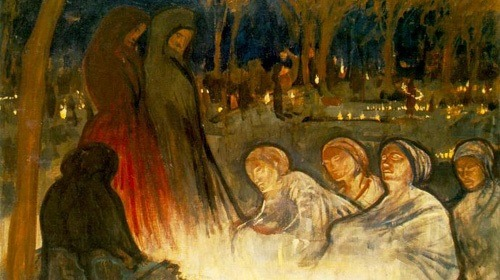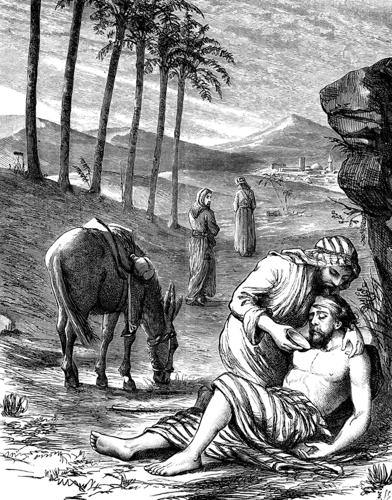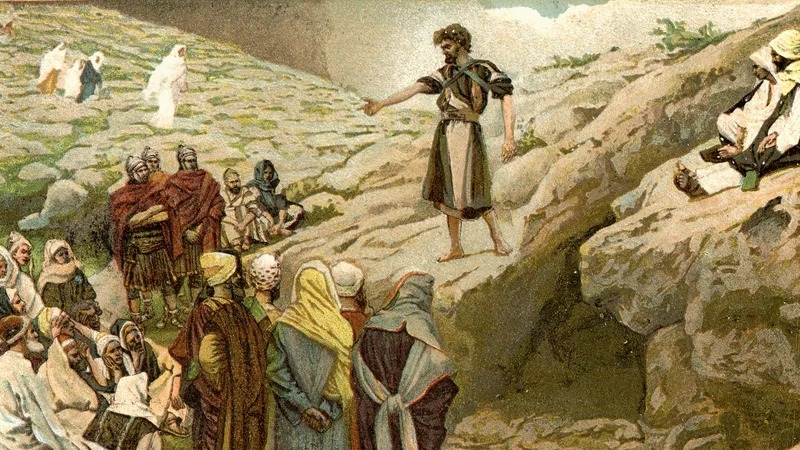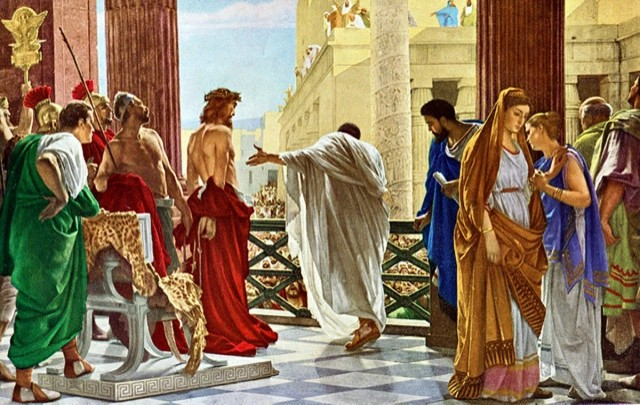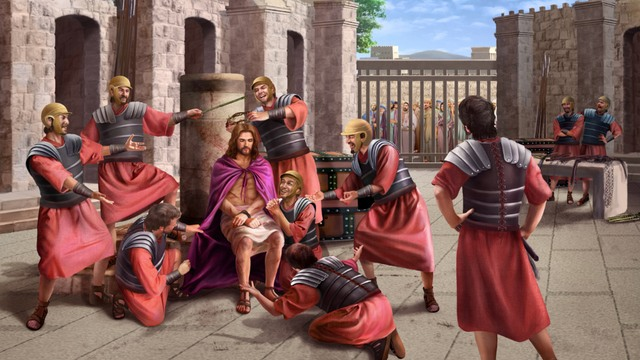𝟭 𝗦𝗮𝗺𝘂𝗲𝗹 𝟮𝟮:𝟴 ” 𝗜𝘀 𝘁𝗵𝗮𝘁 𝘄𝗵𝘆 𝘆𝗼𝘂 𝗵𝗮𝘃𝗲 𝗮𝗹𝗹 𝗰𝗼𝗻𝘀𝗽𝗶𝗿𝗲𝗱 𝗮𝗴𝗮𝗶𝗻𝘀𝘁 𝗺𝗲? 𝗡𝗼 𝗼𝗻𝗲 𝘁𝗲𝗹𝗹𝘀 𝗺𝗲 𝘄𝗵𝗲𝗻 𝗺𝘆 𝘀𝗼𝗻 𝗺𝗮𝗸𝗲𝘀 𝗮 𝗰𝗼𝘃𝗲𝗻𝗮𝗻𝘁 𝘄𝗶𝘁𝗵 𝘁𝗵𝗲 𝘀𝗼𝗻 𝗼𝗳 𝗝𝗲𝘀𝘀𝗲. 𝗡𝗼𝗻𝗲 𝗼𝗳 𝘆𝗼𝘂 𝗶𝘀 𝗰𝗼𝗻𝗰𝗲𝗿𝗻𝗲𝗱 𝗮𝗯𝗼𝘂𝘁 𝗺𝗲 𝗼𝗿 𝘁𝗲𝗹𝗹𝘀 𝗺𝗲 𝘁𝗵𝗮𝘁 𝗺𝘆 𝘀𝗼𝗻 𝗵𝗮𝘀 𝗶𝗻𝗰𝗶𝘁𝗲𝗱 𝗺𝘆 𝘀𝗲𝗿𝘃𝗮𝗻𝘁 𝘁𝗼 𝗹𝗶𝗲 𝗶𝗻 𝘄𝗮𝗶𝘁 𝗳𝗼𝗿 𝗺𝗲, 𝗮𝘀 𝗵𝗲 𝗱𝗼𝗲𝘀 𝘁𝗼𝗱𝗮𝘆.”
David was a rising star in Israel. The esteem he was held in had surpassed that of King Saul. That didn’t just irk Saul, it drove him into deep suspicion.
There was presumed treachery that filled Saul’s heart and his thinking:
𝟭 𝗦𝗮𝗺𝘂𝗲𝗹 𝟭𝟴:𝟴 𝗦𝗮𝘂𝗹 𝘄𝗮𝘀 𝘃𝗲𝗿𝘆 𝗮𝗻𝗴𝗿𝘆; 𝘁𝗵𝗶𝘀 𝗿𝗲𝗳𝗿𝗮𝗶𝗻 𝗱𝗶𝘀𝗽𝗹𝗲𝗮𝘀𝗲𝗱 𝗵𝗶𝗺 𝗴𝗿𝗲𝗮𝘁𝗹𝘆. “𝗧𝗵𝗲𝘆 𝗵𝗮𝘃𝗲 𝗰𝗿𝗲𝗱𝗶𝘁𝗲𝗱 𝗗𝗮𝘃𝗶𝗱 𝘄𝗶𝘁𝗵 𝘁𝗲𝗻𝘀 𝗼𝗳 𝘁𝗵𝗼𝘂𝘀𝗮𝗻𝗱𝘀,” 𝗵𝗲 𝘁𝗵𝗼𝘂𝗴𝗵𝘁, “𝗯𝘂𝘁 𝗺𝗲 𝘄𝗶𝘁𝗵 𝗼𝗻𝗹𝘆 𝘁𝗵𝗼𝘂𝘀𝗮𝗻𝗱𝘀. 𝗪𝗵𝗮𝘁 𝗺𝗼𝗿𝗲 𝗰𝗮𝗻 𝗵𝗲 𝗴𝗲𝘁 𝗯𝘂𝘁 𝘁𝗵𝗲 𝗸𝗶𝗻𝗴𝗱𝗼𝗺?”
Now, Samuel the prophet had already told Saul that he had been rejected as king – by God. Saul’s hold on power, then, was only by human means. And in the tradition of royal families, there was a dynasty to be upheld and defended. Threats like David needed to be eliminated.

But David had no intention of overthrowing Saul; he served the king with exemplary loyalty. He was NOT, as the king accused, lying in wait for him. He was fleeing for his life from a murderous tyrant.
The paranoia that governs the life of some in power causes acts of malice towards even the most innocent and upstanding people under them. Indeed, the worst thing you can do under a tyrant is do your job well. Any acclaim that comes your way is perceived as something taken away from the despot. There can only be one star – the ruler.
While autocratic, tyrannical, even murderous rulers do exist in the world even today I am thankful to never have one running political things where I have lived; at least to the extent of hunting down their enemies to kill them physically. However, the controlling spirit of stultifying leadership is everywhere, and I have seen that.
If I’m under such an authority, I do think it’s God’s will and self-preservation to escape or hideout in the corners such as David did. While it is part of any employment to do what it takes to advance the corporation or organization, being slain in reputation, limited in future development or otherwise discredited and disparaged is harmful to the soul. I have been there; and my refuge was lateral movement. Escape is not always possible, so shelter is advisable. I prayed, I moved as I saw opportunity.
If I AM in a role of authority, woe to me if I become jealous towards those who report to me – I need to fight that zealously. For indeed, may they be more gifted and productive than I am. I need to promote them, even above and beyond me, seeing my role in their lives as nurturer, even for a short season. And in that role, I rejoice with those who rejoice (Romans 12:15), at any advancement.
Hierarchy is solidly scriptural and may I live in the structure with a heart after God.
